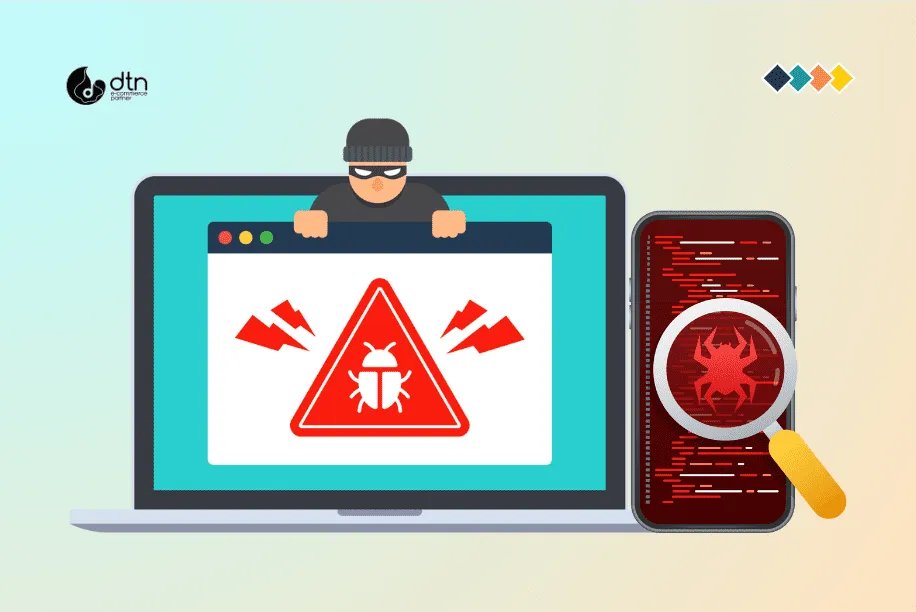In the world of online shopping, where ease of use and accessibility are crucial, the challenge of fraud presents a serious concern. With the rise of online transactions, fraudsters have become increasingly sophisticated, devising cunning schemes to exploit vulnerabilities in payment systems and steal valuable customer data. Below are what you should know about Fraud Prevention in E-commerce.
Table of Contents
As an e-commerce business owner, it’s crucial to stay vigilant against these malicious actors. Fraud prevention is not just a reactive measure; it’s a proactive strategy that can safeguard your business and protect your customers from financial harm.
In this comprehensive guide, we’ll delve into the world of fraud prevention in e-commerce, exploring the different types of fraud, the latest detection techniques, and best practices to mitigate risks.
Types of Fraud in E-commerce
- Identity Theft:
Fraudsters steal personal information, such as names, addresses, and credit card numbers, to make fraudulent purchases.
- Card-Not-Present Fraud:
This occurs when a fraudulent transaction is made using a stolen or compromised cred
it card without the cardholder’s physical presence.
- Friendly Fraud:
Customers make legitimate purchases but later file chargebacks, claiming they didn’t authorize the transaction or received defective goods.
- Account Takeover:
Fraudsters gain access to customer accounts and make unauthorized purchases or steal sensitive information.
- Phishing:
Scammers send emails or text messages disguised as legitimate businesses, tricking customers into providing personal or financial information.

Fraud Detection Techniques
- Address Verification System (AVS):
AVS compares the billing address provided by the customer with the address on file with the credit card issuer.
- Card Verification Value (CVV):
CVV is a three- or four-digit security code printed on the back of credit cards, which helps verify that the cardholder has the physical card.
- Geolocation Analysis:
This technique checks the IP address of the customer’s device to determine if it matches the location associated with the billing address.
- Device Fingerprinting:
Advanced algorithms analyze unique characteristics of the customer’s device, such as browser type, operating system, and screen resolution, to identify potential fraud.
- Machine Learning and Artificial Intelligence (AI):
AI-powered systems can learn from historical fraud patterns and identify suspicious transactions in real-time.

Best Practices for Fraud Prevention
- Implement a Fraud Detection Solution:
Partner with a reputable fraud detection provider that offers a comprehensive suite of tools and services.
- Educate Customers:
Inform customers about common fraud schemes and provide tips on how to protect their personal information.
- Monitor Transactions Regularly:
Review your sales data for any suspicious patterns or anomalies that could indicate fraud.
- Use Strong Passwords and Two-Factor Authentication:
Enforce strong password policies and implement two-factor authentication for customer accounts.
- Be Vigilant About Phishing Attacks:
Educate employees and customers about phishing scams and implement anti-phishing measures.
- Collaborate with Payment Processors:
Work closely with your payment processors to share fraud data and identify potential risks.
- Stay Up-to-Date on Fraud Trends:
Keep abreast of the latest fraud techniques and adjust your prevention measures accordingly.

Conclusion
Fraud prevention in e-commerce is an ongoing battle that requires a multi-layered approach. By implementing robust fraud detection solutions, educating customers, and staying vigilant against evolving threats, businesses can effectively mitigate risks and safeguard their operations.
Remember, fraud prevention is not just about protecting your business; it’s about protecting your customers and maintaining their trust in your brand. By embracing a proactive and comprehensive approach, you can create a secure and reliable e-commerce environment for all.
Frequently Asked Questions
We’ve compiled a list of answers to common questions.
Neglecting fraud prevention measures can result in financial losses due to chargebacks, damaged reputation, loss of customer trust, increased scrutiny from payment processors, and even legal repercussions if customer data is compromised.
How can e-commerce businesses effectively balance the need for strong fraud prevention customers?
E-commerce businesses can strike a balance by implementing adaptive fraud prevention systems that dynamically adjust their security measures based on risk levels, offering guest checkout options to reduce account creation friction, and providing clear communication about security measures to reassure customers.
What role do customer verification methods play in fraud prevention?
Customer verification methods, such as two-factor authentication, identity verification services, and biometric authentication, play a crucial role in fraud prevention by adding an extra layer of security. Effective strategies include implementing multi-step verification processes, leveraging third-party identity verification solutions, and using behavioral analytics to detect suspicious activities.
How can e-commerce businesses leverage data analytics and machine learning algorithms?
E-commerce businesses can utilize data analytics and machine learning algorithms to analyze large datasets for patterns indicative of fraudulent behavior, develop predictive models to identify potential fraud in real-time, and continuously refine their fraud detection strategies based on evolving trends and patterns.
E-commerce businesses can train their staff to recognize and respond to suspicious behavior, establish clear communication channels for reporting fraudulent activity, foster a culture of security awareness among employees, collaborate with industry peers to share insights and best practices, and provide resources for customers to educate themselves about common fraud schemes.



